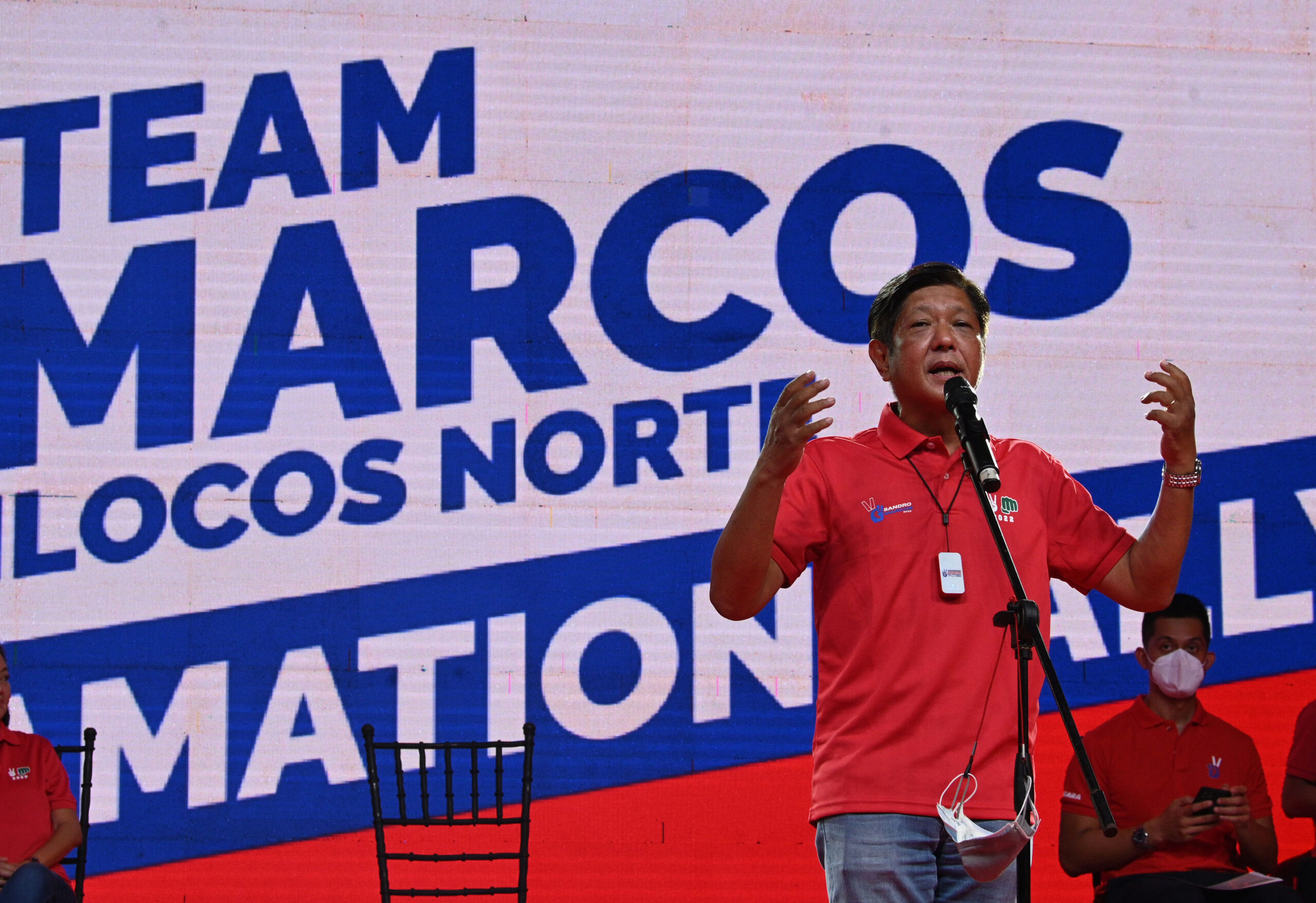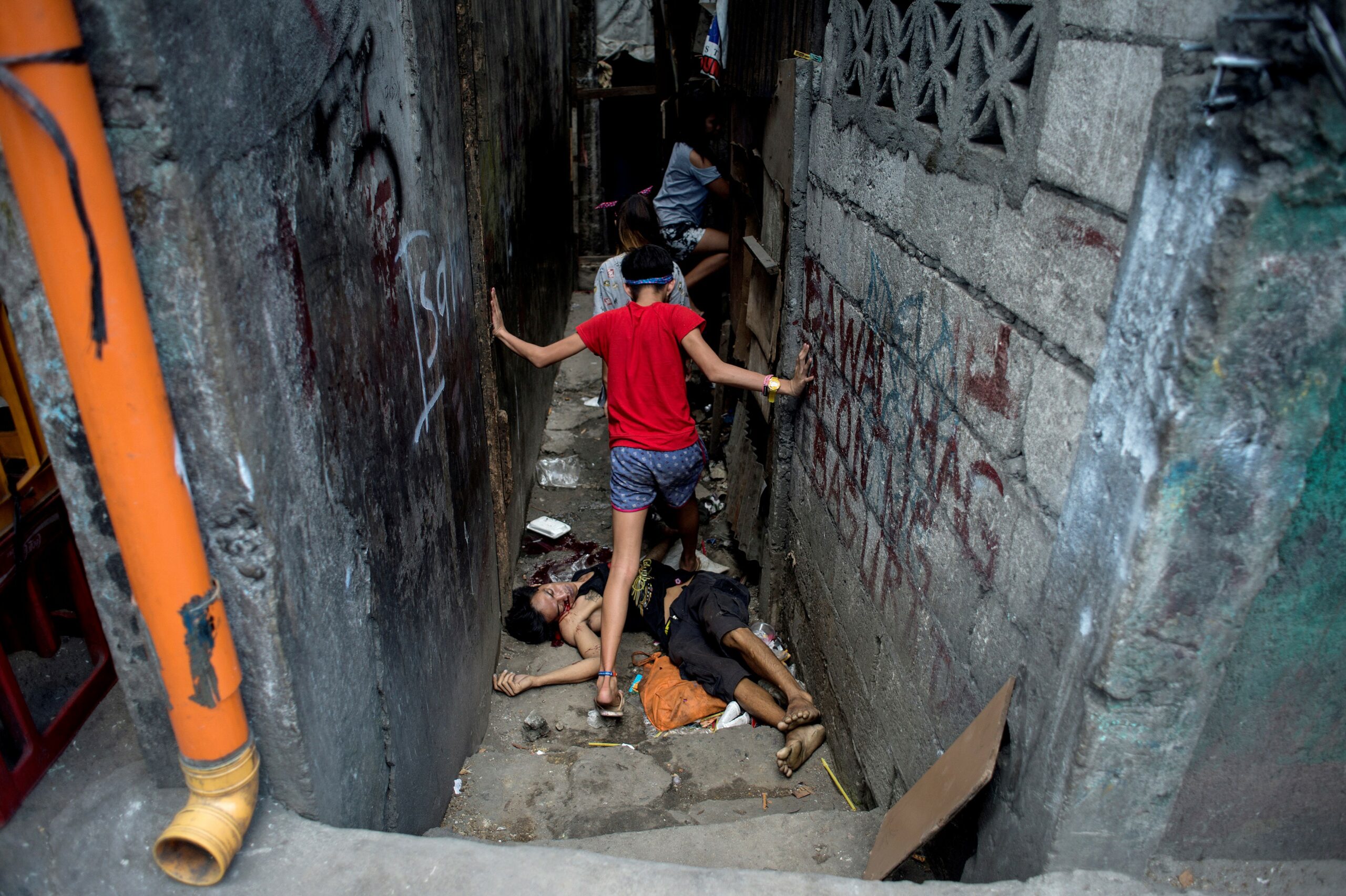In the lead up to May’s Philippine election, now-President Ferdinand “Bongbong” Marcos Jr pledged to take a different, less punitive approach to illicit drugs than his predecessor, strongman Rodrigo Duterte.
Marcos Jr promised to continue Duterte’s ‘war on drugs’ but “in a different way”, referring to an approach that focused less on enforcement and more on prevention. This included new strategies such as funding education campaigns and opening rehabilitation centres, which would mark a radical shift from Duterte’s support of extrajudicial violence against drug dealers and users.
But despite Marcos Jr’s pledges to the contrary, new data shows that deaths from enforcement operations continue to occur and may be dramatically under-reported by authorities. Marcos Jr. also held his predecessor’s course on shunning the oversight of the International Criminal Court (ICC), all while there is no evidence of any meaningful policy change by his government in its approach to tackling illicit drug use through prevention and rehabilitation.
Duterte’s violent crackdown was pivotal to his election in 2016. At the time, he claimed there were 3 million drug addicts in need of “slaughter”, adding that he would offer bounties to police for killing drug dealers and users. Duterte also said he would pay the legal fees of police accused of killing drug suspects.
The Philippine Drug Enforcement Agency estimates that approximately 6,200 people were killed during the Duterte regime. However, the agency has been accused of manipulating its data by advocacy groups such as Human Rights Watch.
Rights groups within the Philippines have estimated the number of deaths is far higher, closer to 30,000 people. Since 2016, more than 230,000 drug enforcement operations have been conducted and over 300,000 suspects have been detained.

Though the rates of anti-drug violence may have decreased, data suggests police are still killing Filipinos during raids and other enforcement actions.
The University of the Philippines’ Third World Studies Center’s Dahas program, which monitors the war on drugs, recently estimated that 127 people have been killed between 1 July, when Marcos Jr began his term, and 7 November.
This is far larger than the Philippine police estimate of 46 people killed during anti-drug operations during this period. The Philippine National Police (PNP) Chief, General Rodolfo Azurin Jr, labelled these deaths a “very minimal” number in a recent forum with the Foreign Correspondents Association of the Philippines. Azurin Jr also stated the PNP “wanted to minimise as much as possible these killings” and vowed to uphold the protection of human rights while maintaining a hard-line approach to illicit drugs.
This approach, according to the government, is working through a focus on less lethal drug enforcement operations and drug rehabilitation efforts.
Through these efforts, the PNP has allegedly seized $4.9 million (9.7 billion pesos) worth of illicit drugs since Marcos Jr was elected. It has also made 22,646 arrests in 18,505 anti-drug operations, according to the government.
While a focus on less lethal operations, prevention and rehabilitation is welcome, the problem here is transparency. A recent report from Human Rights Watch has stated there is “no evidence” of any policy change and that any attempts at drug rehabilitation are involuntary, coercive and violate people’s human rights.
Meanwhile, Marcos Jr has refused to re-join the ICC, claiming that his government was already investigating alleged crimes committed by the regime of Duterte, who had withdrawn the Philippines from the court in 2019.
With the ICC looking to provide justice for the thousands of victims and their families, Marcos Jr’s continued withdrawal represents a lack of accountability on human rights.

On 15 September 2021, the ICC agreed to open an investigation into possible crimes against humanity committed between 2016-19, during Duterte’s time in office.
The court was also tasked with investigating extrajudicial killings committed in Davao City between 2011-16, when Duterte was mayor. While this investigation was deferred in November 2021, the ICC chief prosecutor has since reopened the investigation after a request for a deferral by the Philippines government was rejected.
The new president has continuously said that his government will be committed to human rights. But actions speak louder than words, and if Marcos Jr is serious about upholding the rights he claims he wants to protect, then he must start by doing this in a few ways.
First, the war on drugs needs to end. No deaths are acceptable, particularly when the government preaches prevention and rehabilitation. For this reason, deadly enforcement operations and drug raids need to stop in preference for legitimate, holistic prevention and rehabilitation strategies.
Admittedly, hard-line policies are popular with a large cohort of Filipinos, making policy change difficult. However, this can be achieved by rolling out proactive education campaigns to help shift societal and cultural views on drug use and to show the benefits of prevention and rehabilitation.
To ensure transparency, the PNP should also ensure that accurate statistics are published on past and present drug enforcement operations, fatalities, arrests and referrals to rehabilitation.
This could be achieved in partnership with reputable institutions, such as universities, to ensure that all data is accurate and at arms reach of the government to ensure transparency. This will go a long way in holding the authorities accountable for any deaths.
International and local human rights monitors should also be free to monitor the human rights situation at ground-level without fear of arrest or reprisal from Philippine authorities.
Marcos Jr should also allow justice for the families of those killed by fully cooperating with the ICC investigation. This includes supporting the prosecution of any authorities charged with crimes committed during the war on drugs.
In the meantime, the president should order the Philippines Department of Justice to conduct a thorough, transparent and impartial investigation into the PNP and any alleged extrajudicial killings. While the ICC investigation should take precedence, this will send a message to Filipinos that the government is holding perpetrators to account.
Marcos Jr should also take steps to re-join the ICC. This would send a signal to Filipinos and the international community that his government is serious about human rights. These steps will go a long way to ensure there is accountability for past crimes and that new ones will be prevented.
The Philippines needs a fresh break from its recent past after suffering six years of a deadly drug war. Marcos Jr, if he is legitimate about protecting human rights, can achieve this break by providing justice for the families of those killed and holding those responsible to account.
Doing so will help the country heal after a brutal six years.
Chris Fitzgerald is a freelance journalist based in Melbourne, Australia. He is Senior Correspondent for the Pacific for the Organization for World Peace, writing on important geopolitical and human rights issues in the region.


